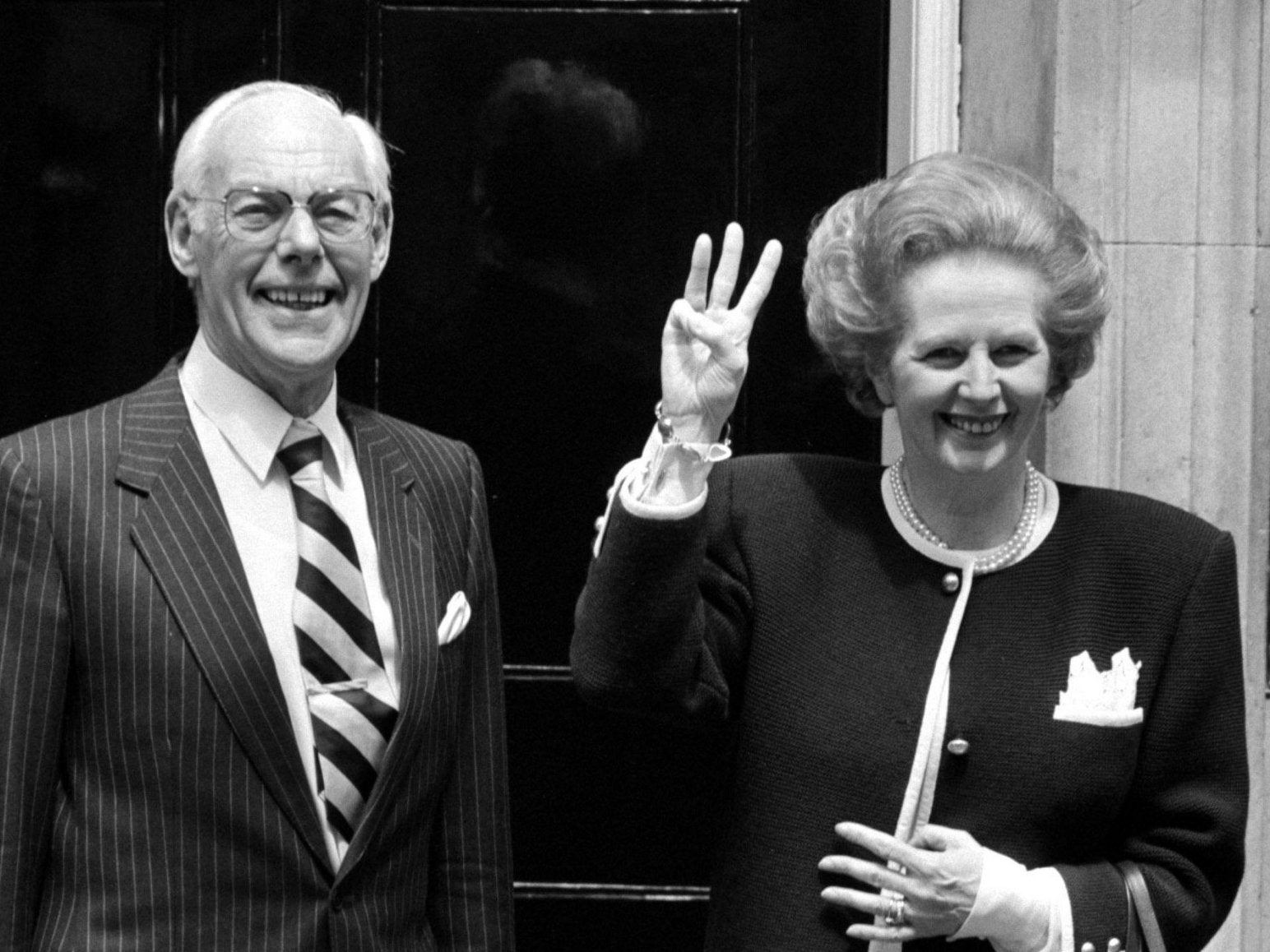This is why Margaret Thatcher deserves to be the face of the new polymer £50 note
We are quick to whitewash the ‘great men’ of our history, while forgetting women altogether


Your support helps us to tell the story
From reproductive rights to climate change to Big Tech, The Independent is on the ground when the story is developing. Whether it's investigating the financials of Elon Musk's pro-Trump PAC or producing our latest documentary, 'The A Word', which shines a light on the American women fighting for reproductive rights, we know how important it is to parse out the facts from the messaging.
At such a critical moment in US history, we need reporters on the ground. Your donation allows us to keep sending journalists to speak to both sides of the story.
The Independent is trusted by Americans across the entire political spectrum. And unlike many other quality news outlets, we choose not to lock Americans out of our reporting and analysis with paywalls. We believe quality journalism should be available to everyone, paid for by those who can afford it.
Your support makes all the difference.The Bank of England has confirmed the creation of a polymer £50 note, and the competition for its new face is already on. One of the most prominent petitions has been for the note to bear the likeness of former Conservative prime minister Margaret Thatcher.
Thatcher is well qualified for the spot. She is already deceased, and of course she had an important effect on our society and culture. In the words of her former aide Nile Gardiner: “Lady Thatcher was one of the greatest leaders in British history, and a figure who transformed Britain’s standing in the world.” While her “greatness” may be a matter of ongoing political debate, Thatcher’s significance is absolutely not.
Born a grocer’s daughter in 1925, Thatcher earned a chemistry degree at Oxford. After graduating in 1947, she applied for a job at International Chemical Industries from which she was rejected because, in their words, “this woman is headstrong, obstinate and dangerously self-opinionated”.
She qualified as a barrister aged 28, less than five months after her twin children were born. As an MP, Thatcher was one of very few Conservatives to vote for the legalisation of abortion, and support the decriminalisation of male homosexuality. Her lambaste of the Soviet Union in 1976 earned her the epitaph “Iron Lady”.
In 1979, Thatcher became Britain’s first female prime minister. She proved a brutal but – for better or worse – incredibly effective leader. Her refusal to concede during the miners’ strikes saw tens of thousands of people lose their jobs and crushed the workers’ unions. She won the Falklands War, and survived an assassination attempt when her Brighton hotel was bombed by the IRA in 1984. In the face of (merited, I would argue) opposition to many of her policies, she forebore.
Unlike the Queen, who will automatically feature on the other side of the £50 note, Thatcher fought hard to claim her position on the national and international stage. On the basis of tenacity and impact alone, Margaret Thatcher is no less entitled to a place on our banknotes than many figures who have gone before her. But it is unlikely that she will get one.
Feminist activist, author and journalist Caroline Criado-Perez, who campaigned for and won female representation on the new £10 note, which features Jane Austen, told me: “There is simply no case for Thatcher to be on the £50. She is too divisive, and that goes against Bank of England guidelines. It is a non-discussion; it won’t be her."
There are indeed many excellent arguments against Thatcher’s candidacy for the £50 note, not least the suffering of working classes under her tenure. However if a case is to be made against her on the basis of the painful memories and emotions she inspires (and that seems reasonable), then we ought also to pay closer scrutiny to other figures marked on bank notes who, by comparison, get off rather easily.
Currencies across the world are covered with impressions of men with murky histories. The first president of the US, George Washington, whose face is on the American $1 bill, inherited 10 slaves at the age of 11. By his death in 1799, 314 slaves lived on his Mount Vernon estate. President Andrew Jackson, who stares listlessly from the $20 bill, was a plantation slave owner.
Winston Churchill, who is repeatedly deified by the British public, believed in eugenics and racial hierarchies; he has also been accused of Islamophobia and antisemitism. His export policies exponentially aggravated the Bengal famine, which cost millions of lives. When his £5 polymer banknote entered into circulation in 2016, Mark Carney marked the occasion with a favourite Churchill quote: ‘“A nation that forgets its past has no future”.
If men like this deserve to be honoured, then so does Margaret Thatcher.
Maybe there's a third option: is the relaunch of the £50 an opportunity to choose a lesser-known character from our country’s past. What about Noor Inayat Khan, the Indian princess who spied for the allies during World War Two? Or Edith Garrud, the jiu jitsu suffragette, who taught women to defend themselves against the aggressive police force? Or Mary Seacole, the Jamaican-Scottish nurse who set up the British Hotel behind the lines during the Crimean War, and treated soldiers to considerably less acclaim than her white counterpart, Florence Nightingale?
We are quick to whitewash the “great” men of our history, while forgetting women altogether. Margaret Thatcher, flaws and all, is well remembered. She has as much right to a place on the £50 note as Churchill on the £5, but – like Churchill – she doesn’t need it.
Perhaps it's time to shift the focus to those who have so far remained outside the limelight.
Join our commenting forum
Join thought-provoking conversations, follow other Independent readers and see their replies
Comments